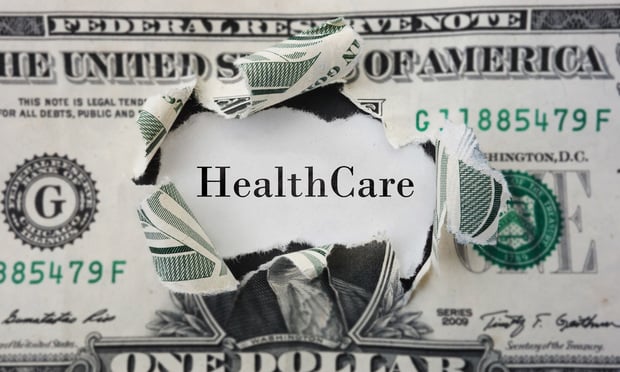 If given a chance to sit down with our 2020 presidentialcandidates, here's what our readers would say.
If given a chance to sit down with our 2020 presidentialcandidates, here's what our readers would say.
Quality control?
If I could meet with the 2020 presidential candidates, I wouldask them how they foresee correcting current legislation (orintroducing new legislation) to retain the accessibility to care that the ACA provided,but help control the costs of health care without compromising thequality. I'd be curious to know if any of the candidates know whatthe average quality of care is in the United States compared tolike countries, and if they believe paying for care based off of amultiple of Medicare can be a sustainable part of the solution forthe long term.
|Emma Passé, COO, E Powered Benefits
|Due diligence
I would ask, are we sure “Medicare for All” wouldn't mimicMexico's health care? Medicare for those who cannot afford it, andprivate coverage for wealthy Americans?
|Adam Hall, employee benefits consultant, The OlsonGroup
|The student loan issue
The one question I'd ask the presidential candidates and membersof Congress is regarding the taxability of student loan payments made by employers as abenefit. While student loan payment plans have been touted as “thehot new benefit” for the last couple years, the participation inthese programs has actually lagged behind the hype. Reports I'veseen suggest participation only inching up to just over 5 percentof employers currently offering them. That said, it's been mybelief that the taxability of these payments has been the primaryhindrance for more explosive growth. Additionally, employers notonly have to make the contributions, but often have to pay setupfees, as well as monthly participation expenses. This can becostly, requiring buy-in not only from HR, but also the CFO orfinance team.
|Kevin Kennedy, benefits consultant, TriBen InsuranceSolutions
|The cost of freedom
To the Democrats:
- Socially, one-size-fits-all programs from other countries (likeCanada, where I'm from) won't fly with the Americanindependent-thinker.
- Independent-thinkers vote, and they don't want to be told whatto do.
- Decide who you think is falling through the cracks of thecurrent model, and expand funding just for those folks.
To the Republicans:
- Talk about Medicare for All as a one-size-fits-all approach tohealth care. The American independent-thinker doesn't wantthat.
- Be honest that there's not a country in the world that has asingle-payer system that gives its people health care with anythingclose to the control we have here in America.
- Design a health care approach that provides Americans a safetynet for those in need, but all others will have the freedom tochoose their benefits. Be direct about the fact that more choicesand options will cost more, but that they will be free tochoose.
Reid Rasmussen, co-founder & CEO, freshbenies
|How do you measure success?
When I met with one of our reps from North Carolina in Februaryhe told me he thinks that our health care system is improving. Itold him that I wasn't so sure. I would ask the candidates, howwould you measure the success of our health care and healthinsurance systems? Is it that we are spending less money on healthinsurance and health care costs per family per year? Is it thatmembers are getting easier access to care? Is it that we are havingbetter outcomes?
|Rachel Miner, founder and CEO, Thrive Benefits
|Focus on the product
Stop focusing on the cost/price of health insurance and howpeople pay for care, and start addressing what we all pay foractual care. I would also tell them that solutions already existthat have been proven in the market, so we don't need single-payer.We need to scale solutions that are already proven to work,beginning with public sector employers.
|Josh Butler, president, Butler Benefits &Consulting
|Let's talk price
I would inquire about their stance and support for Medicare forAll, given the current climate and focus on health care in America.I am bewildered at times by the lack of focus on pricetransparency. We are the only industry where an individual does notknow the true cost of services or products rendered beforepurchase.
|While there have been some marginal efforts to bring aboutbetter price transparency, a greater focus needs to be placed onlegislation and laws that will enable true change. Medicare for Allis a great headline, but it takes away from the discussion of whatwe can do today to start the shift in this broken system. Whileprice transparency is not the end-all be-all answer, it's a part ofthe start of a broader discussion.
|Anthony Kai Williams, employee benefits advisor, PSAInsurance & Financial Services
|Accountability in question
Who is accountable for deciding what care and procedures areapproved? When the financials are finite, sacrifices will need tobe made. Are you willing to be the one who makes thatsacrifice?
|Joseph Hopkins, director of business development, PremiseHealth
|Price check
Can we get a price before services are rendered?!
|David Contorno, founder, E Powered Benefits
|Socialized skeptic
The U.S. already has socialized medicine: Medicare/Medicaid, theVA and Indian Health Services. All have tremendous amounts of fraudand waste.
|Craig Becker, benefits consultant, BeckerConsulting
|Keep it private
Implementing a form of single-payer in the U.S. would require acomplete restructuring of a health care system. Having a chance atsustainability would require attacking industry stakeholders whohave grown to represent 18 percent of GDP, and more than $1trillion per year in wasteful health care spending. The largest ofthese cost-driving stakeholders have historically beenuntouchable.
|You know who doesn't care about these stakeholders or the moneythey spend? The private-sector innovators who are attackingcost-drivers at every turn. It's significantly more likely that aclutch of driven data scientist-entrepreneurs working on a pricetransparency and outcomes efficiency platform will deliver moremeaningful reform than could ever be accomplishedlegislatively.
|Scott Wham, director, compliance services, Kistler TiffanyBenefits
|Thanks, but no thanks
You can keep Medicare for All! Why do you think wealthy peoplefrom other countries pay to come to the U.S.? I don't want to havea number and have to wait months on months to get a surgery I mayneed right away. Let's disrupt 160 million employer-providedinsured so 150 million people can give us all bad health insurance?Will Congress be in the wait list?
|Pat W., director of human resources, Philadelphia YouthNetwork
|Knowledge is power
I would say that you need a national data warehouse with allcarriers' commercial de-identified claims. And most importantly, norestrictions or limits on how the data can be used. Then you canback into the provider contracts and compare providers bill codesfor like conditions.
|Leon Wisniewski, senior data analyst, Certilytics
|Passing the buck?
How would Medicare for All reduce costs? Medicare along withMedicaid (both government funded) has created the phenomenon ofcost shifting. What happens when there is no more private insuranceto shift the costs to? Rationing, waiting for care, low qualitydocs and facilities, lack of services overall? I could go on, butyou get the picture.
|Mark E. VonMoss, manager financial services division, TheInsurancecenter
|Read more:
Complete your profile to continue reading and get FREE access to BenefitsPRO, part of your ALM digital membership.
Your access to unlimited BenefitsPRO content isn’t changing.
Once you are an ALM digital member, you’ll receive:
- Critical BenefitsPRO information including cutting edge post-reform success strategies, access to educational webcasts and videos, resources from industry leaders, and informative Newsletters.
- Exclusive discounts on ALM, BenefitsPRO magazine and BenefitsPRO.com events
- Access to other award-winning ALM websites including ThinkAdvisor.com and Law.com
Already have an account? Sign In
© 2024 ALM Global, LLC, All Rights Reserved. Request academic re-use from www.copyright.com. All other uses, submit a request to [email protected]. For more information visit Asset & Logo Licensing.








